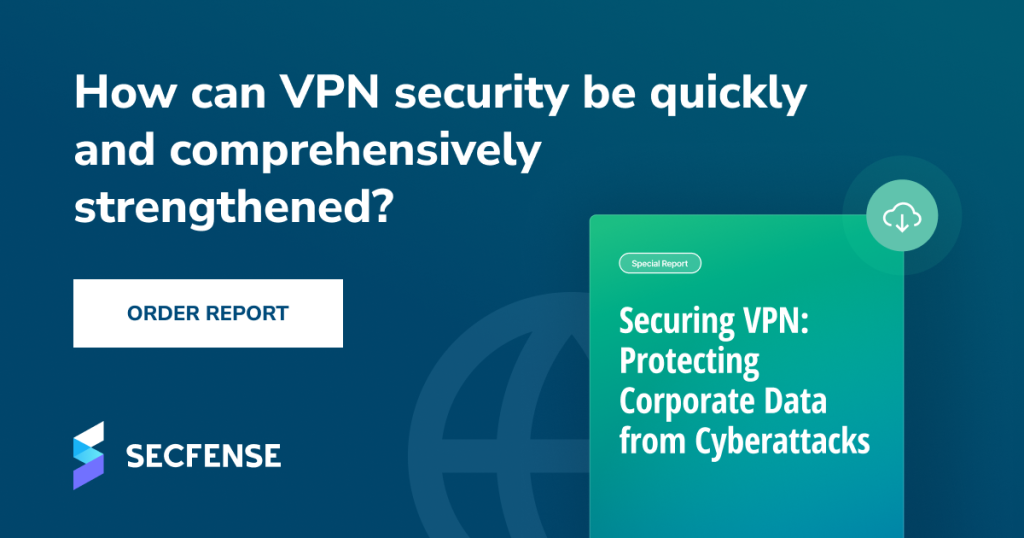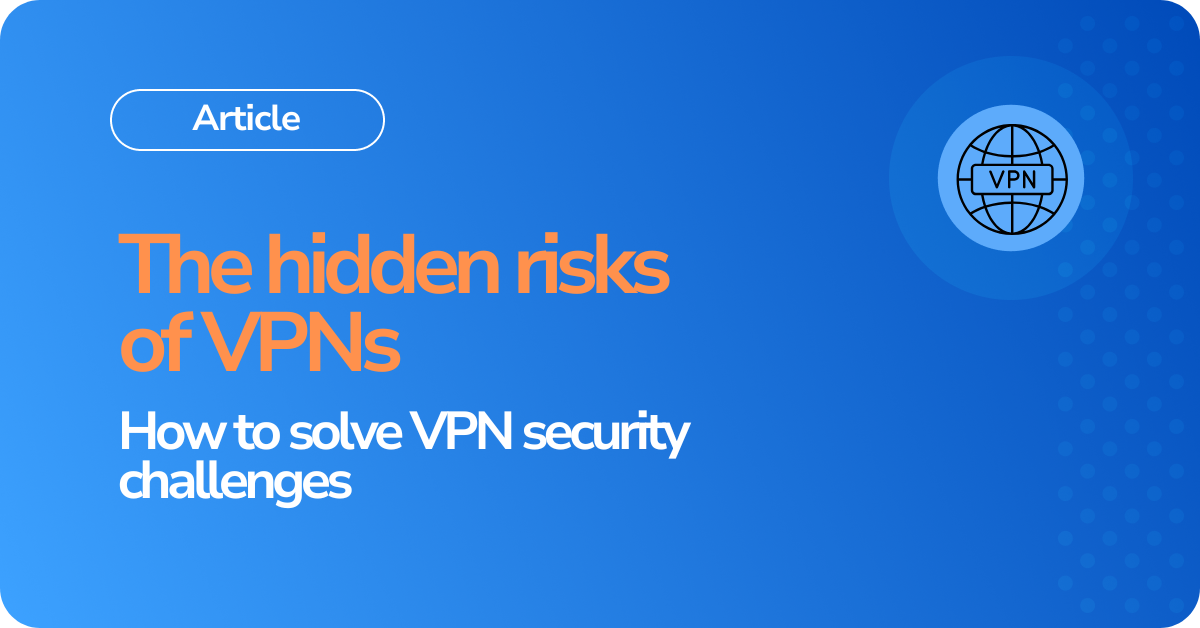Introduction: The Hidden Risks of VPNs
For years, Virtual Private Networks (VPNs) have been a cornerstone of corporate security, enabling employees to securely access company systems from remote locations. But in today’s threat landscape, even VPNs—once considered a gold standard—are showing cracks.
Recent high-profile vulnerabilities in widely used VPN solutions, like Fortinet and Ivanti, underscore the growing risks. Cybercriminals are targeting VPNs with increasingly sophisticated methods, from stealing credentials to exploiting zero-day vulnerabilities. These breaches threaten sensitive data and disrupt business operations.
The question isn’t whether your VPN is at risk—it’s how you can fortify it before attackers exploit its weaknesses.

The Problem with VPN Security
VPNs are designed to protect data in transit and provide secure access to company resources. But they also come with inherent vulnerabilities:
- Stolen Credentials: Cybercriminals use phishing, brute-force attacks, and malware to steal employee login details. Once compromised, these credentials grant attackers direct access to the VPN.
- Weak Encryption: Older VPN protocols and misconfigured systems are vulnerable to encryption-breaking techniques, leaving data exposed.
- Authentication Loopholes: Attackers often target the VPN login process itself, bypassing authentication mechanisms through sophisticated attacks.
- Zero-Day Vulnerabilities: Even up-to-date VPN systems can be exploited if they harbor undiscovered flaws.
The result? VPNs that should protect your company become an entry point for attackers.
The Solution: Strengthening VPN Security
To address these risks, organizations must go beyond basic VPN configurations and invest in advanced security measures.
1. Implement Stronger Authentication
Passwords alone are no longer sufficient to secure VPNs. Multi-factor authentication (MFA) adds a critical layer of defense. Solutions like FIDO2 authentication or biometrics ensure that even if a password is stolen, it cannot be used without a second verification step.
- Benefits:
- Prevents unauthorized access, even if credentials are compromised.
- Future-proofs security with passwordless, phishing-resistant technology.
2. Protect VPN Login Pages
VPN login forms are common targets for cybercriminals. Full Site Protection (FSP) addresses this issue by making the login page invisible to unauthorized users. Only employees with registered authentication methods can access it.
- Benefits:
- Stops attackers from even seeing or targeting the VPN login page.
- Ensures access is restricted to verified users.
3. Adopt Future-Ready Tools
Modern authentication standards like FIDO2 and SAML allow organizations to strengthen security without disrupting workflows. These tools integrate seamlessly with existing VPN systems and enable a transition to passwordless authentication.
- Benefits:
- Enhances security while improving user experience.
- Simplifies access management and reduces reliance on vulnerable password systems.
Real-World Success: Why These Measures Work
Recent incidents involving Fortinet and Ivanti highlight the importance of these upgrades. In both cases, attackers exploited vulnerabilities in authentication processes to gain unauthorized access. Had these organizations deployed strong MFA and protected login pages, the breaches might have been avoided.
Proposed Next Steps for Organizations
To ensure your VPN is no longer a weak link, here’s what your organization should do:
- Approve Funding: Invest in solutions that enhance VPN security, including MFA and Full Site Protection.
- Engage with Vendors: Partner with trusted providers to deploy tools that integrate with your existing systems.
- Transition to Modern Standards: Begin adopting passwordless authentication and future-proof security technologies.
These steps will protect your organization’s sensitive data and provide employees with secure, flexible access to resources—without fear of cyberattacks.
Conclusion: A Safer Future for VPNs
Securing your VPN is no longer optional—it’s essential to protect your organization from ever-evolving cyber threats. With strong multi-factor authentication, advanced tools like Full Site Protection, and a shift to modern, passwordless security standards, you can transform your VPN into a robust defense for your business. Don’t wait until it’s too late. Talk to our cybersecurity experts today to explore tailored solutions, or download our comprehensive special report to gain all the insights you need to strengthen your VPN security. The time to act is now.
